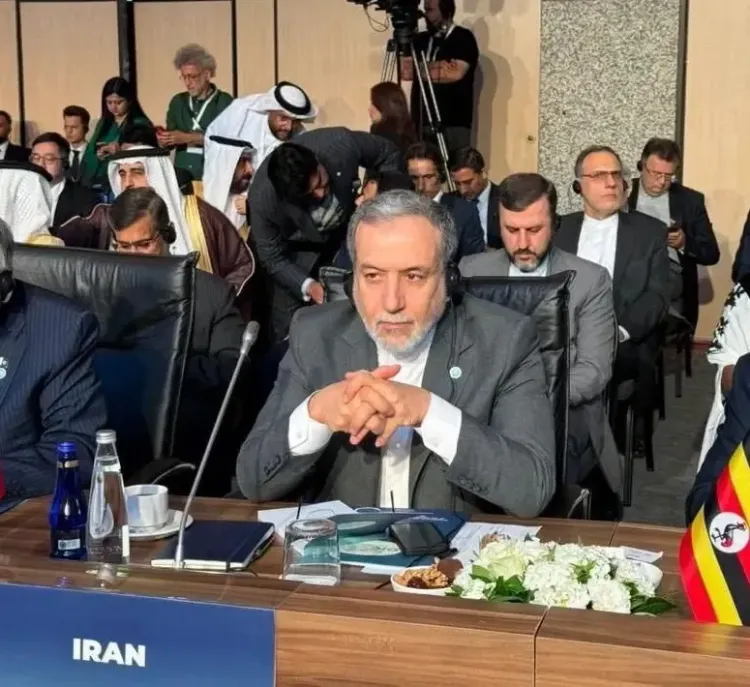Is Iran's FM Open to 'Fair, Balanced' Talks with Washington?

Synopsis
Key Takeaways
- Tehran is open to negotiations with Washington.
- Mutual respect is crucial for any discussions.
- Only the nuclear issue is on the table for negotiation.
- Iran will not compromise on its uranium enrichment rights.
- Current talks with European nations are not feasible.
Tehran, Oct 12 (NationPress) The Iranian Foreign Minister, Seyed Abbas Araghchi, announced that Tehran is prepared for "fair and balanced" discussions with Washington.
During a televised interview with state-operated IRIB TV, Araghchi detailed Iran's stance regarding the revival of negotiations with the United States concerning its nuclear program and the lifting of sanctions.
He emphasized that if the U.S. can present a proposal that protects Iran's interests, Tehran would give it serious consideration, as reported by Xinhua news agency.
"Our position towards the United States has consistently been transparent," he stated. "If they are open to negotiations on equal terms to protect mutual interests, based on mutual respect... and are willing to engage in a fair and balanced dialogue, we too will be prepared for such discussions."
He clarified that Iran's nuclear matter would be the sole subject of negotiations with the West, asserting, "this is our unwavering position."
Araghchi reiterated that Iran would not relinquish its right to enrich uranium domestically, reaffirming that the enriched uranium would solely serve peaceful purposes.
Regarding the potential resumption of talks with the three European nations—France, Britain, and Germany, collectively referred to as the E3—he noted, "Currently, there is no basis for negotiations with the Europeans."
In 2015, Iran entered into a nuclear agreement, officially known as the Joint Comprehensive Plan of Action, with six significant countries—Britain, China, France, Germany, Russia, and the United States—accepting limitations on its nuclear program in exchange for relief from sanctions.
However, the United States withdrew from the agreement in 2018, reinstating sanctions and leading Tehran to reduce some of its commitments.









